

I heard that Bitcoin is becoming centralized. Is that true?
The approval of the Bitcoin spot ETF in the United States in January 2024 has led to a discourse suggesting that "Bitcoin is expected to become centralized." Understanding the information and actual data about the spot ETF can help grasp the concepts of centralization and decentralization more clearly.
This article will explain the topic of Bitcoin and centralization in an easy-to-understand manner.

Summary of the Article
- Although the Bitcoin spot ETF has been approved, the Bitcoin network is not under state control.
- Exchanges and custody companies hold a lot of Bitcoin, but a significant amount of Bitcoin is also held in personal wallets.
- Compared to other cryptocurrencies, Bitcoin is not particularly centralized.
This article was written in Japanese and converted to English using a translation tool.
Date of writing (Japanese version): January 2024
[Basic Knowledge of Bitcoin] Differences Between Decentralized and Centralized
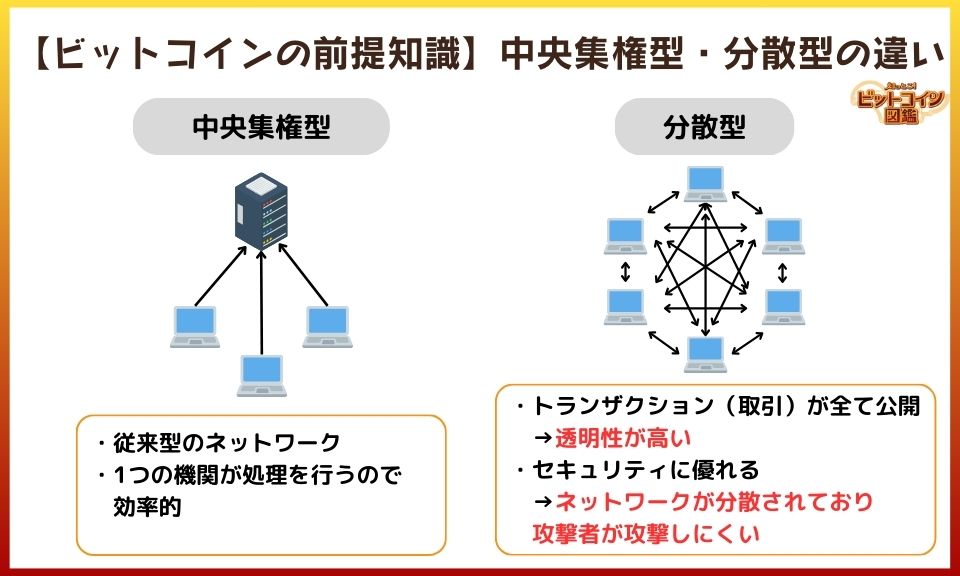
A centralized network is managed by a central entity such as a bank or corporation. In contrast, a decentralized network is managed by many distributed computers.
Over 10,000 nodes (computers) around the world validate Bitcoin transactions.
Decentralized Network of Bitcoin
- Not owned by anyone
→ The network is jointly operated by all participants, and no single person or organization can control everything. - Anyone can participate
→ The Bitcoin network is open for anyone to join or leave freely. - Joint decision-making
→ Changes to the network rules require the consensus of many nodes. Even if one node fails, the entire network continues to function correctly.
Bitcoin is a prime example of a decentralized network.
Despite the absence of a central governing entity, it has a robust distributed mechanism.


Since the first Bitcoin block was created in 2009, the Bitcoin blockchain has been running continuously!
Is Bitcoin Becoming Centralized?


I've heard that Bitcoin is becoming centralized…
With the approval of the Bitcoin spot ETF by the U.S. SEC, some media outlets have been suggesting that Bitcoin may become centralized.


Huh? What does that mean?
The idea is that integrating Bitcoin into centralized financial markets through an ETF could lead to its centralization.


Is that what an ETF does? I want to know more about ETFs.
What is a Bitcoin ETF?
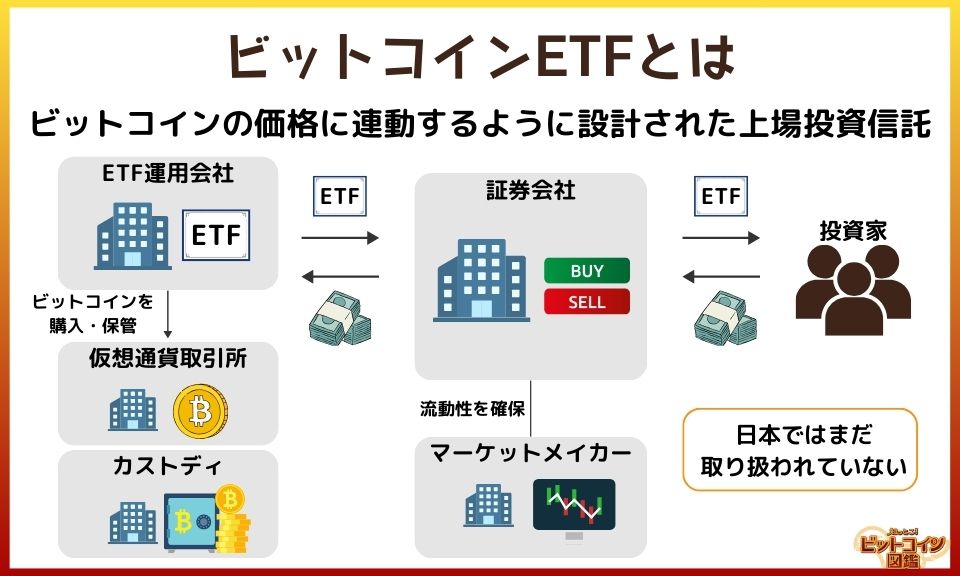
A Bitcoin ETF is an exchange-traded fund designed to track the price of Bitcoin. It allows investors to gain exposure to Bitcoin without directly investing in or holding the cryptocurrency.
Because it can be traded through traditional brokerage accounts, many investors who participate in conventional financial markets can also access the Bitcoin market.

So, there's this opinion that integrating Bitcoin into centralized financial markets through an ETF leads to its centralization, but…
Given that existing cryptocurrency exchanges also operate within centralized financial markets, I'm not entirely sure how ETFs would further centralize Bitcoin.
With the approval of the spot ETF, what more can the state do to institutions holding physical BTC compared to what they already do to crypto exchanges?


Wait, does that mean the state can give orders regarding the Bitcoin held by ETF custodians or cryptocurrency exchanges?
*Custody: Refers to the safekeeping of assets by a custodian on behalf of ETF management companies.
It depends on the country's laws and circumstances, but it's not impossible.
The state cannot issue orders to designated financial institutions at will, but there could be orders given if custodians or exchanges are subject to criminal investigations.


I'm curious about how much Bitcoin custodians and exchanges hold. Out of the 21 million maximum supply, how much do they have in custody?
Are Bitcoin Custody Firms Holding a Significant Amount of Bitcoin?
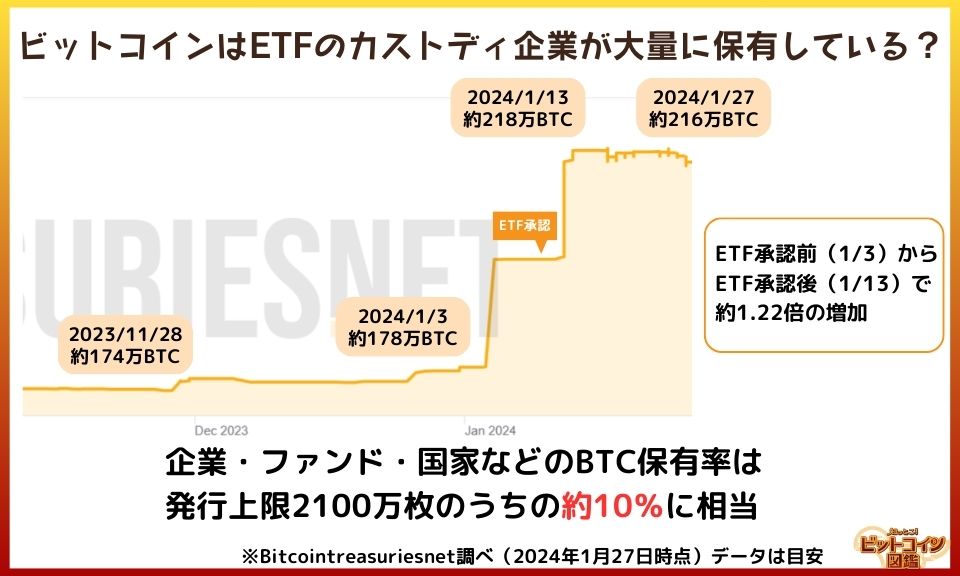
According to BitcoinTreasuriesNet, companies, funds, and nations hold about 10% of the total BTC supply as of January 27, 2024.
While custody firms and exchanges do hold a significant amount of Bitcoin, they do not hold the majority of the circulating supply.
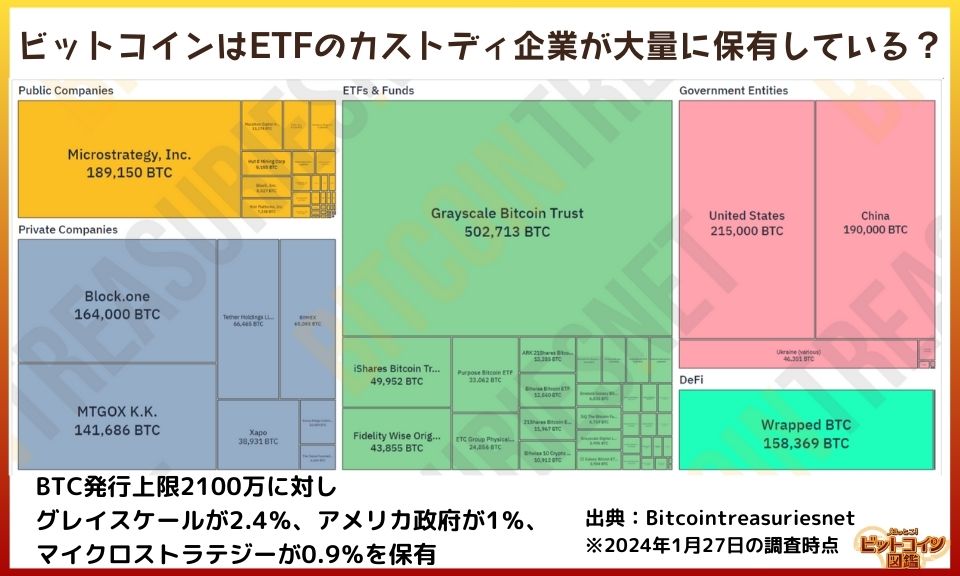

I've heard that Bitcoin ETFs move around 10,000 to 100,000 BTC, but that doesn't mean the majority of the issued Bitcoin is with custody firms.
It's true that custody firms and exchanges may increase their Bitcoin holdings over time. However, it's also a fact that a lot of Bitcoin is stored in personal wallets.

Bitcoin Ownership Distribution (Rough Illustration)
Twice as much #bitcoin is LOST as is currently controlled by institutions and governments.
— Walker⚡️ (@WalkerAmerica) January 21, 2024
Only a tiny fraction of the world owns bitcoin, and after the halving in April, only 1.3125/21M @btc will be left to be mined.
It might make sense to get some, just in case it catches on. pic.twitter.com/DQGhrdsSEJ
Is Bitcoin Under the Control of the SEC (or any government)?
Bitcoin ETFs fall under the same category as commodity ETFs, which include assets like oil, wheat, and gold. These underlying assets can be subject to import/export restrictions during emergencies, but they are not generally viewed as being under strict governmental control.
The term "under governmental control" suggests a scenario where a state rigorously regulates the value and distribution of an asset, which is not typically applied to commodities.

The phrase "under governmental control" makes it sound like the government directly controls Bitcoin, but it feels more accurate to say it's under regulatory oversight.
Structured regulation, rather than outright bans, could be seen as beneficial for Bitcoin in the long run.


The idea of governmental control sounds like the state could manipulate the Bitcoin network. But the government can't stop the Bitcoin network, right?
Of course not. Governments can't manipulate the Bitcoin network at will. The network is globally distributed and can't be controlled by a single entity.


Governments might have some influence over the Bitcoin held by exchanges and custody firms, but they can't stop the Bitcoin network itself. The term "under governmental control" seems misleading for those unfamiliar with Bitcoin.
The term "under governmental control" might apply to the claims on BTC held by exchanges and custody firms, but personal BTC holdings and the Bitcoin network itself are not under such control.

Bitcoin and Centralization Q&A

I want to know more about Bitcoin and centralization.
I'll explain topics related to centralization in a Q&A format.

How Does Bitcoin Compare to Other Cryptocurrencies in Terms of Centralization?
Number of Blockchain Nodes
| Cryptocurrency | Node Count |
|---|---|
| Bitcoin | 16556 Reference:CoinDance |
| Ethereum | 7194 Referenc:Etherscan |
| Ripple | 35 Referenc:Wikipedia |
| Dogecoin | 634 Referenc:Blockchair |
Comparing the number of network nodes, Bitcoin shows higher decentralization than other networks.
Coin Distribution in Top Wallets (Percentage Held by Top Wallets)
- Bitcoin
Top 4 addresses hold 3.54% of BTC
Top 111 addresses hold 15.59% of BTC - Litecoin
Top 3 addresses hold 6.74% of LTC
Top 115 addresses hold 37.1% of LTC - Dogecoin
Top 15 addresses hold 49.72% of DOGE
Top 149 addresses hold 70.49% of DOGE
Source:BitInfoCharts January 27, 2024
(流通枚数に対し、上位アドレスが何%分のコインを保有しているかを示す)
According to "CoinCarp", many cryptocurrencies show a greater concentration of holdings than Bitcoin. Among the top 10 cryptocurrencies by market cap, Bitcoin had the least skewed distribution (as of January 27, 2024).


I've heard people say Bitcoin is concentrated among early adopters, but it seems other cryptocurrencies often have large holdings by development teams or early investors.
Compared to other cryptocurrencies, Bitcoin doesn't seem particularly skewed in its distribution.
Additionally, Bitcoin uses a system called Proof of Work (PoW). Holding a large amount of Bitcoin doesn't give you control over the blockchain.
Many altcoins use Proof of Stake (PoS), where governance voting can be influenced by those holding large amounts of the coin.


Some altcoins have prominent leaders or companies behind them, but Bitcoin continues to operate even though its creator, Satoshi Nakamoto, has disappeared.
It feels like Bitcoin is more decentralized compared to other cryptocurrencies.
Is Bitcoin Becoming Centralized Due to Mining Pools?
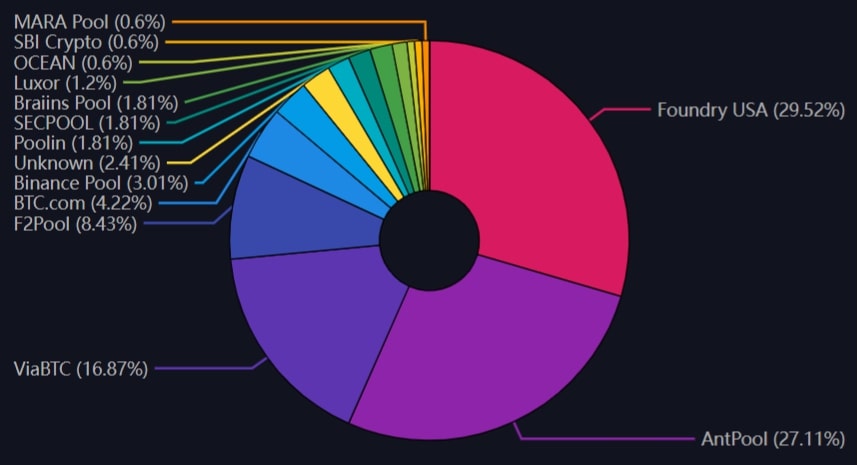
As of January 27, 2024
There is an opinion that "if you combine the top two or three mining pools, they could launch a 51% attack, meaning Bitcoin is centralized." However, this claim is somewhat exaggerated.
Mining Pool: A system where small miners collaborate to mine and share the rewards.
*51% Attack: When malicious miners control 51% of the hash rate (mining speed) and can execute double-spending.
Miner: Individuals who participate in mining.
Mining: The process of validating transactions on the network and writing them correctly to the blockchain, earning Bitcoin as a reward.
Thousands of miners participate in mining pools, making it impractical for all to unite for an attack. If a mining pool attempts an attack, miners can switch to another pool.

If a 51% attack were to happen, the price of Bitcoin held by miners would plummet. Not all miners would agree to such an attack.
Moreover, if a mining pool plans a 51% attack, miners opposing fraud would likely leak the information, making it difficult to unite.
A mining pool attempting a 51% attack would lose trust from miners and investors.
Would a profitable mining pool risk its reputation for short-term gain? It doesn't seem likely.

Summary: Is Bitcoin Becoming Centralized?
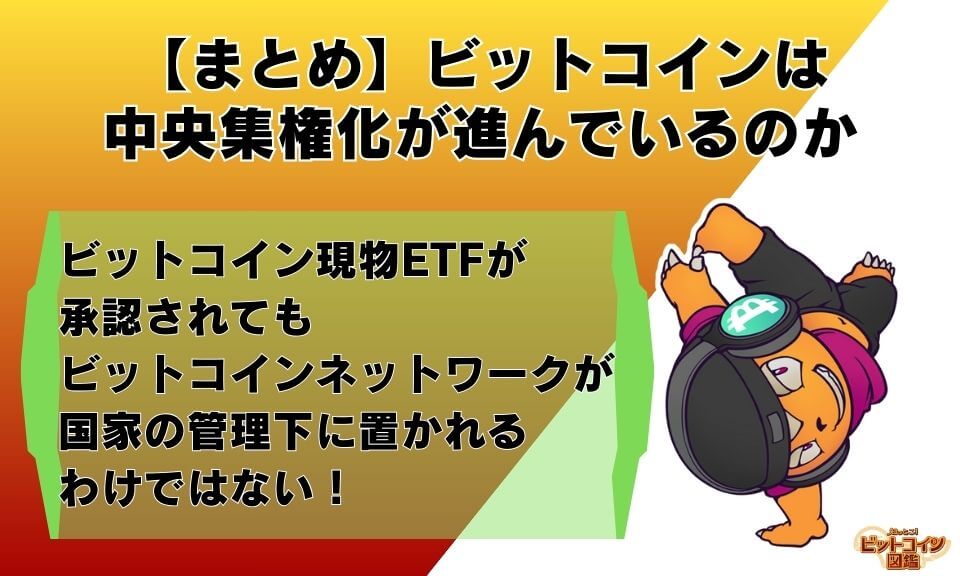
Key Points
- The approval of the Bitcoin ETF does not mean the Bitcoin network is under state control.
- Exchanges and custodians hold significant amounts of Bitcoin, but many Bitcoins are still held in individual wallets.
- Compared to other cryptocurrencies, Bitcoin is not particularly more centralized.

Some say that integrating Bitcoin into the centralized financial market through ETFs leads to centralization, but the decentralized nature of the Bitcoin network remains unchanged.
ETFs increase access to the Bitcoin market for more investors, potentially leading to broader acceptance and maturity of the market. Despite this, the decentralized nature of the Bitcoin network will continue to be maintained.


Bitcoin seems complex and hard to understand, but I want to learn more.
Let's learn more about Bitcoin!
Recommended Articles:What is Bitcoin?

Writer:Sigeru Minami
Creator of "Bitcoin-zukan.com."
Active as a handmade craftsman of Bitcoin goods.
